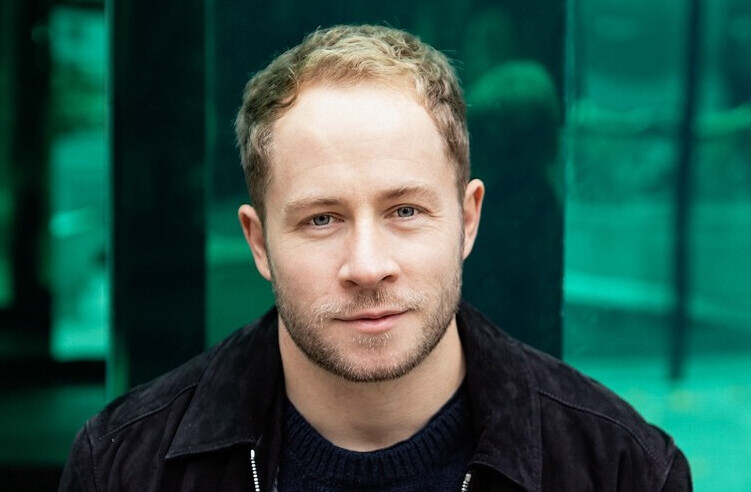
Did you know Growth Quarters is taking the stage this fall? Together with an amazing line-up of experts, we will share key insights into entrepreneurship during TNW Conference 2021. Secure your ticket now!
It’s pretty likely you’re able to pull up an anecdote about the life of a top entrepreneur without much effort. From Bill Gates’ divorce proceedings to Elon Musk’s opinion on crypto and Richard Branson’s love for kitesurfing, there’s no doubt that high-level executives are now expected to be public figures.
More than ever, it’s people – not companies – moving the world of business forward.
There is a reason why a February 2021 Harris Poll indicates that 85% of Americans believe that CEO reputation significantly impacts the perception and valuation of a company. Teams aren’t merely the people behind the face of the product anymore; they become the faces themselves.
We all like to be liked; it makes us feel good… but apart from that, it’s extremely good for business. In fact, VCs deem the founding management team to be even more important than a startup’s business model, according to HBR.
The average value of an exit is $242.9 million.
Let me show you how to utilize executive branding to achieve this and possibly much more.
Mine reputational capital
Working with founders every day, it still dumbfounds me that leveraging the reputational capital of the executive team remains a highly underutilized technique for a better exit.
Whether you like it or not, there’s immense value in letting customers, investors, stakeholders, and even current and future employees peek behind the curtain and learn about the personalities representing the company.
After all, following the year of uncertainty that fully tested leadership, people have become far more sensitive to what company executives stand for.
Remember when a decade ago, the ultimate flex was having your brand name printed on a t-shirt? Today, that’s nowhere near as important as actually having that t-shirt made from sustainable materials.
In our interconnected society, everyone can form an opinion of what the world should look like and what the role of their companies is in that process. Branded products are great to boost team spirit, but won’t get you very far in terms of your sales goals.
Consumers are highly aware of the power of their dollar and won’t think twice about opting for a competitor with ethics or values that better connect with theirs.
Half of investors already use digital platforms to learn what CEOs are saying. But it’s not enough to stop there. If your team has a CFO, COO, and CMO, they should all invest in building up their personal authority platforms.
A team that not only works but also lives your mission and vision lifts the visibility of your company and makes you more attractive to potential investors.
Only you know how to be you
Here, let me borrow the words of Tom Peters, a prominent business management author:
To be in business today, our most important job is to be head marketers for the brand called You.
So, remember that your personal reputation is equally as important as your products.
Startups are hectic, yes. You are probably too busy trying to hit that next milestone – before you run out of cash – to dedicate the slightest bit of energy to what the “world” out there thinks of you. But trust me on this — if there’s anything you shouldn’t outsource, it’s your personal brand.
There is no such thing as business-to-business. Have you ever seen a “business” buy anything? No, it’s always person-to-person. There is someone that makes the decision to sell and someone that makes the decision to buy.
Executive branding is all about creating motivational levers that drive people towards becoming a customer, and it’s something that needs to come from you.
There are a few simple strategies that won’t have you work your fingers to the bone. Podcasts, for example, are extremely powerful.
In just an hour, you can create a bank of valuable content that can then be spread across multiple channels and is directed towards a specific outcome or behavior you want your listeners to take.
If your team makes an effort to represent itself consistently, it’s best equipped to build long-term trust in its abilities and decisions.
Avoid avoiding yourself
In executive branding, there’s only one rule: be yourself.
You can’t show up in your crisp suit anymore, so don’t waste time on the polish. Statistically, CEOs who display authentic qualities are outranking those who do not.
When crafting your narrative, avoid the temptation to share professional updates only. Showing off by only recognizing your successes will not score you many points – it’s the matrix of your actions, values, skills, experience, all sprinkled with personality, that works best.
Whether it’s jokes or puppy videos, there’s a space for everything. People want to know what you did on the weekend, how you feel about the latest Reddit chain, and what your struggles are.
Also, realize that your executive story didn’t begin when you started the company – it was long before that.
What strange things happened to you? Did you spend a summer juggling your way through Europe? Have you had a near-death experience? What was weird about your great-grandparents? Never avoid your back story – embrace it and own it.
The likes of Richard Branson and James Altucher do this incredibly well, but for inspiration, don’t shy away from exploring platforms like TikTok (yes, seriously).
The young and rising influencers of today are building their followings through two-sided community engagement. Bold, edgy, and fun bits connect them with micro-communities, one after another. Not that you should become an influencer – just think of Elon Musk’s doge memes.
Found this pic of me as a child pic.twitter.com/hUEKluRAdP
— Elon Musk (@elonmusk) June 2, 2021
You might ask if there are any limits to being yourself. My simple response is that there aren’t — though brace yourself for backlash.
Still, it’s always a push-and-pull situation. Not everybody is going to like you, so push away those that won’t and bring closer those that want to hear what you have to say.
Gary Vaynerchuk is the perfect example: he built up his audience through brutally honest advice and occasional swear words – and his fans love him for that.
Find your process
Speaking of Gary, he is huge on his personal brand:
Your reputation online, and in the new business world is pretty much the game, so you’ve got to be a good person. You can’t hide anything, and more importantly, you’ve got to be out there at some level.
And where else to cultivate that brand than on socials? Today, 82% of consumers are more likely to trust a company whose CEO and leadership team engages on social media, so that’s another big reason to put yourself out there.
Yet, these platforms are full of rabbit holes that can lead nowhere. One of the easiest ways to get started is to make informed comments on interesting or trending posts.
When posting, get out of the fog and tell the real story. Apart from overly promotional contributions, forget about low-quality, spammy content.
An emoji-vote LinkedIn poll about a preferred work modality was cool at the beginning of the pandemic, but everyone’s fed up with it now. Instead, find a steady pace that allows you to share content of value.
You don’t need to be a wordsmith, but writing articles or even a short book can bring you a lot of traction. A process that only takes a couple of weeks can give you enough information for months in terms of content bits.
Promoting the cover page as you work through the piece is a great way to get the conversation going. Then, especially if printed, books build authority and trust like no other medium – and they don’t need to end up in Harvard Law School library.
The beauty of personal branding is that there’s no one recipe to get it right. If you aren’t exactly one to start a new Reels trend, it’s fine. Just find your process and keep it up.
Get the TNW newsletter
Get the most important tech news in your inbox each week.




